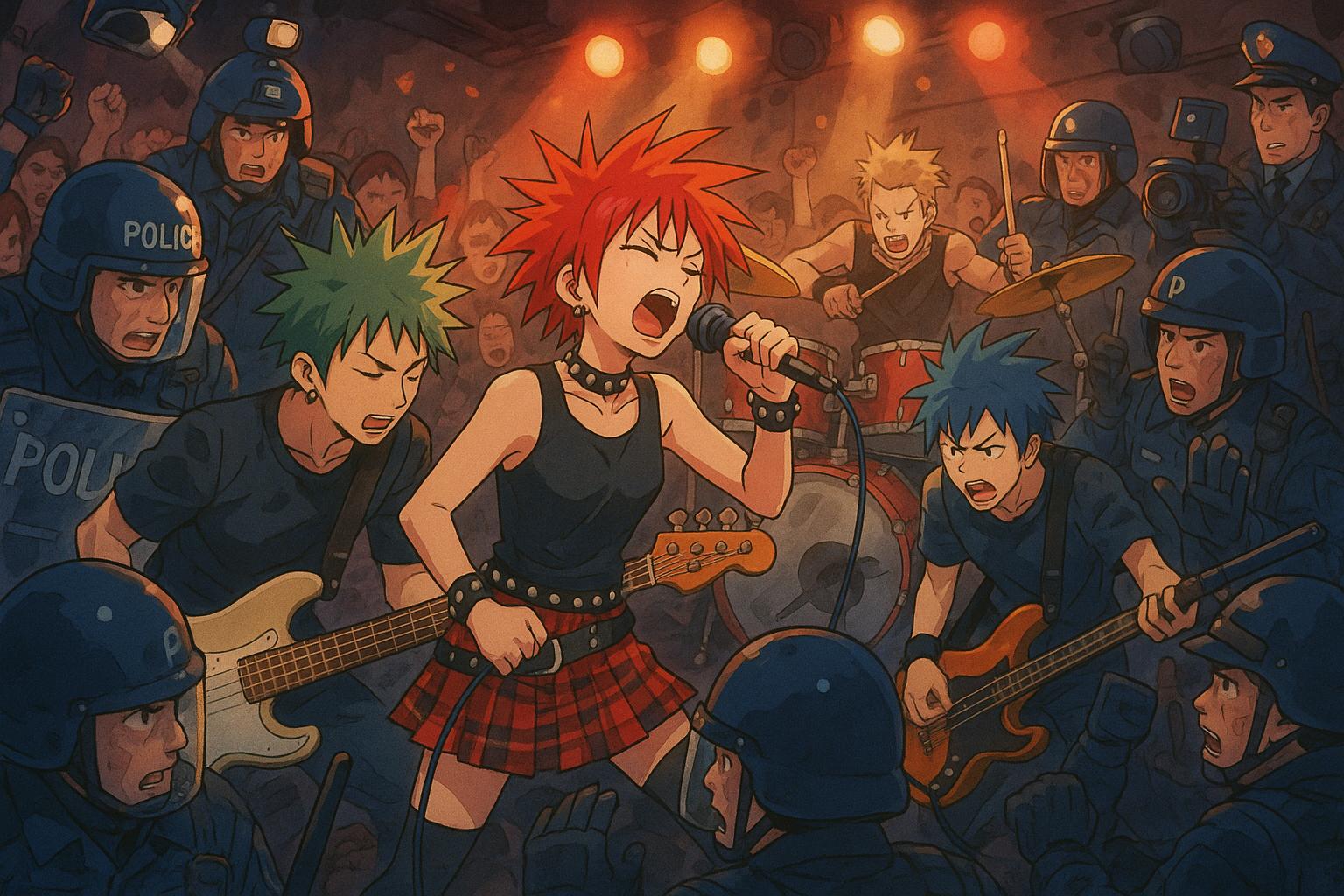The sold-out surprise gig by the West Belfast trio Kneecap at the 100 Club in London found itself under the scrutiny of the Metropolitan Police, acting under a “policing plan” implemented shortly after one of its members, Liam Óg Ó hAnnaidh, faced a charge of terror offences. This remarkable performance was marked by a juxtaposition of celebration and concern, as the band, known for their politically charged lyrics and activism, navigated a tense atmosphere.
In a powerful display of solidarity, the group denounced the charge against Ó hAnnaidh as an instance of “political policing.” Such claims reflect a broader sentiment among artists and activists who see law enforcement actions as being politicised, particularly in the context of issues surrounding Northern Ireland's history. The controversy surrounding this concert raises important questions about the intersection of art, politics, and public safety.
Paloma Faith, a well-known singer-songwriter attending the event, expressed her emotional response to the unfolding drama, stating she felt “moved and saddened” by the situation surrounding the band. Such sentiments resonate widely with audiences who appreciate music as a form of expression that often challenges the status quo.
Additionally, the charge against Ó hAnnaidh has sparked dialogue not only about policing and free speech, but also about the implications for the wider community in Northern Ireland and beyond. While some see the band's music as an authentic representation of their experiences and struggles, others express concern over the potential repercussions of such expressions of cultural identity.
Furthermore, Irish Deputy Premier Simon Harris addressed the complexities of current tensions, urging that groups like Hezbollah and Hamas should not be conflated with the Palestinian population. His remarks highlight an ongoing narrative of misrepresentation in political discourse, which often extends to musicians and artists who dare to comment on contentious issues. The environment surrounding the Kneecap gig underscores the fragile balance between artistic freedom and societal response.
As the night progressed, attendees were clearly focused on the music, a testimony to Kneecap's ability to capture hearts and provoke thought. However, the police presence, ostensibly aimed at ensuring safety, served as a reminder of the turbulent backdrop against which such cultural expressions take place.
The event has sparked a renewed discourse about the role of policing in artistic venues, particularly in the wake of politically charged performances. The implications of such a focus on policing during artistic events are significant, influencing not just the artists, but the audiences and broader communities that engage with their work.
The success of Kneecap's performance, alongside the charge faced by Ó hAnnaidh, illustrates the ongoing struggles that artists face in a landscape intersected by politics, identity, and freedom of expression. As the crowd at the 100 Club celebrated, they did so under the shadow of these realities, embodying a culture rich in resilience and defiance.
Reference Map
- Article about the event and police involvement.
- Commentary on political policing and public responses.
- Insights from Paloma Faith and Irish Deputy Premier Simon Harris regarding broader implications.
Source: Noah Wire Services
